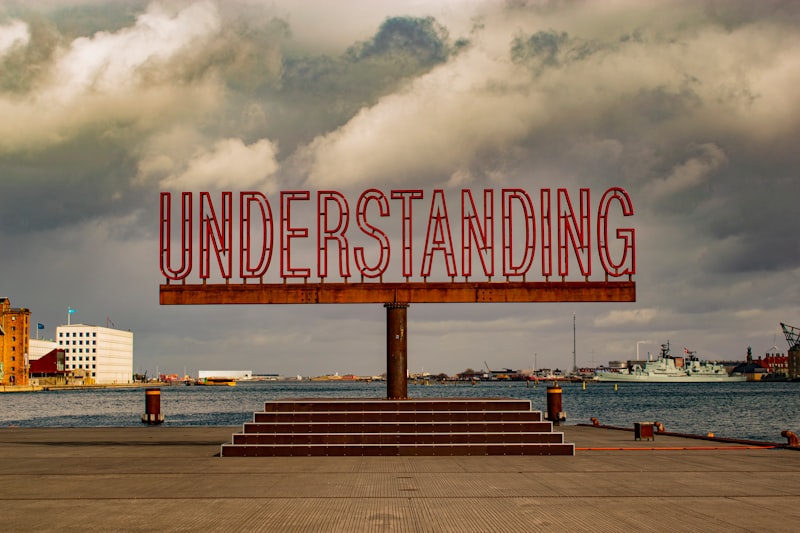- Dream symbolism refers to the use of symbols in dreams to represent deeper meanings and emotions, allowing us to gain insight into our subconscious mind and emotions.
- Escaping hostage dreams symbolize a desire for freedom and liberation from difficult circumstances, representing internal conflicts, emotional turmoil, and a need for security.
- Dream symbolism is highly personal and context-dependent, varying based on individual experiences, emotions, and circumstances.
- Practical tips for understanding dream symbolism include keeping a dream journal, looking for patterns, reflecting on personal associations, seeking professional guidance, and trusting your intuition.
Dreams have long been a source of fascination and intrigue. They can weave intricate narratives, leaving us pondering their hidden meanings and messages. One way to unlock the secrets of our dreams is through the study of dream symbolism. In this article, we will explore the definition and importance of dream symbolism, discuss how dreams are represented in psychological terms, delve into cultural and religious interpretations of dreams, and offer practical tips for understanding the symbolism of escaping hostage dreams.
Understanding Dream Symbolism

1. Definition and Importance of Dream Symbolism
Dream symbolism refers to the use of symbols in dreams to represent deeper meanings and emotions. Symbols can take many forms in dreams, such as objects, animals, people, or even abstract concepts. These symbols may carry personal significance based on our individual experiences, beliefs, and cultural backgrounds.
Understanding dream symbolism is important because it allows us to gain insight into our subconscious mind and emotions. Dreams often tap into our deepest fears, desires, and unresolved conflicts. By deciphering the symbols in our dreams, we can gain a better understanding of ourselves and the challenges we may be facing in our waking lives.
2. Representation of Dreams in Psychological Terms
From a psychological perspective, dreams are seen as a reflection of our unconscious thoughts and desires. Sigmund Freud, the renowned psychoanalyst, believed that dreams served as a means of wish fulfillment. According to Freud, the symbols in our dreams represent repressed or hidden desires that are expressed in symbolic form.
Carl Jung, another influential psychologist, expanded on Freud’s theories by proposing that dreams also contain collective symbols known as archetypes. Archetypes are universal symbols that are ingrained in our collective unconscious and are shared across different cultures. These archetypal symbols can have profound personal and cultural significance.
3. Cultural and Religious Interpretations of Dreams
Dreams have held great significance across various cultures and religions throughout history. In ancient civilizations such as Egypt and Greece, dreams were believed to be messages from the gods or divine beings. Dream interpretation was highly valued and considered an important tool for communication with the spiritual realm.
In many indigenous cultures, dreams are seen as a bridge between the physical and spiritual worlds. They are believed to contain valuable insights and guidance from ancestors or higher powers. Dreamwork is often practiced as a means of connecting with spiritual wisdom and receiving guidance for waking life challenges.
Religious traditions also assign importance to dream symbolism. For example, in the Bible, dreams are depicted as a means of divine revelation. Prophets and biblical figures such as Joseph and Daniel were said to have received messages and warnings through their dreams. Similarly, in Islam, dreams are considered a means of communication from Allah and are often interpreted as signs or guidance.
4. Understanding Symbolism of Escaping Hostage Dreams
Escaping hostage dreams can be particularly intense and enigmatic. They often involve feelings of fear, captivity, and a desperate desire for liberation. Understanding the symbolism behind these dreams can provide valuable insights into one’s emotional state and possible challenges in waking life.
Below are some possible interpretations of escaping hostage dreams:
- Symbolic Representation
The hostage in the dream may symbolize aspects of ourselves that we feel trapped or captive within. It could represent a situation, relationship, or even a thought pattern that is holding us back or causing emotional distress. - Desire for Freedom
The act of escaping in the dream may reflect our deep-seated desire for liberation from difficult circumstances or oppressive relationships. It could signify a longing for more autonomy, independence, or personal growth. - Psychological Conflict
Hostage situations often involve power dynamics and a struggle for control. In dream symbolism, being held hostage may represent an internal conflict between different aspects of ourselves or conflicting emotions that we are grappling with. - Emotional Turmoil
Escaping hostage dreams can be associated with feelings of anxiety, stress, and the need to break free from emotional burdens. It could symbolize the need to confront and release repressed emotions or unresolved issues. - Seeking Security and Safety
Dreams of escaping from hostage situations may also highlight our innate need for safety and security. It could indicate a desire to create a more stable and nurturing environment in our lives.
It is important to remember that dream symbolism is highly personal and context-dependent. The interpretation of escaping hostage dreams can vary greatly depending on the individual’s unique experiences, emotions, and circumstances. Keeping a dream journal and reflecting on the symbols, emotions, and patterns that arise in these dreams can help unravel their deeper meanings.
Symbolism of Escaping Hostage Dreams

Dreams about escaping from being held hostage can be intense and unsettling. They often leave us feeling fearful and entrapped. However, these dreams are not just a random assortment of images that we experience while we sleep. Rather, they are full of symbolism that holds meaning for our waking lives. In this blog post, we will explore the symbolism of escaping hostage dreams.
1. Explanation of Escaping Hostage Dreams
Escaping hostage dreams can be interpreted in many ways. At their core, they represent a desire to break free from a difficult situation. This situation could be anything from a toxic relationship or job to a personal flaw that is holding us back.
These dreams often occur when we are feeling restricted or controlled in some area of our lives. They may be an indication that we are facing obstacles or challenges that we feel unprepared for. Alternatively, they may reflect a sense of powerlessness or the need for change or growth in our lives.
2. The Meaning of Hostage in Dreams
When we dream about being held hostage, it can symbolize feelings of being trapped or restricted in some area of our lives. It may represent external forces that are preventing us from achieving our goals or fulfilling our potential.
Hostage dreams can also be interpreted as a form of self-imposed imprisonment. They may be an indication that we need to confront an aspect of ourselves that is holding us back.
Additionally, hostage dreams may represent a power struggle within ourselves or with others. We may feel like we are at the mercy of someone else’s control or manipulation.
3. What Escaping Signifies in Dreams
Escaping from a hostage situation in dreams often represents the triumph of good over evil. It symbolizes the desire to break free from something that is holding us back and finding the courage to do so.
Dreams about escaping can also mean that we are taking control of our lives and building resilience to overcome adversity. They may signify our desire to move forward and achieve our goals, even in the face of obstacles.
Furthermore, escaping dreams can represent a need for change or growth in our lives. They may be an indication that we need to step out of our comfort zones and take risks in order to achieve our full potential.
4. Other Symbolism in Escaping Hostage Dreams
Aside from the primary symbolism of escaping and being held hostage, there are other elements to consider when interpreting these dreams.
Repressed Emotions: Dreams about escaping captivity can also signify that we are repressing our true emotions or feelings. This type of dream may indicate that we need to deal with these emotions in a healthy way, such as through therapy or expressing them through art.
Responsibility: Dreaming about being the captor may also represent feelings of responsibility. We may feel like we are in charge of something or someone in our lives and need to take more responsibility for our actions.
Escapism: Dreams about escapism indicate a desire to retreat from reality or escape from a difficult situation. This type of dream may be prompting us to take a break from our responsibilities or prioritize self-care.
Chasing and Hiding: Dreams about being chased and hiding represent feelings of being overwhelmed or avoiding a problem in our waking lives. These dreams may symbolize unresolved issues or fears that we need to confront.
Common Dream Scenarios

Dreams have always fascinated us, serving as a window into our subconscious thoughts and emotions. One particular type of dream that can be both thrilling and anxiety-inducing is the escaping hostage dream. These dreams often involve scenarios of being held against one’s will and struggling to break free. While they might leave us feeling panicked and powerless in the moment, understanding the symbolic meaning behind these dreams can provide valuable insights into our waking lives. In this article, we will explore common scenarios in escaping hostage dreams and their interpretations to shed light on the hidden messages they hold.
1. Identifying common scenarios in escaping hostage dreams
In escaping hostage dreams, various scenarios can unfold, each carrying its own symbolism and significance. Here are some of the most frequently encountered scenarios:
- Locked in a room
One common scenario involves being locked in a room or confined space, unable to find an exit. This confinement can represent feeling trapped or limited in some aspect of your life, whether it’s a stifling relationship or a dead-end job. - Being chased by captors
Another scenario is being pursued by your captors who are determined to keep you captive. This can reflect the pressures and demands you face in your waking life, where you may feel constantly chased by deadlines, expectations, or responsibilities. - Planning an escape
In some dreams, you may find yourself strategizing and planning your escape from your captors. This shows your determination and resourcefulness in overcoming obstacles and seeking freedom. - Finding a hidden passage
Discovering a hidden passage or secret door represents uncovering hidden solutions or opportunities that can lead to liberation in your waking life. It highlights your ability to find alternative paths when faced with challenges. - Assistance from others
Dreams may also feature the help of others in your escape attempt. This symbolizes the importance of seeking support and relying on those around you for guidance and assistance in difficult times.
2. Detailed interpretation of each scenario
Now that we have identified common scenarios in escaping hostage dreams, let’s delve into their interpretations to gain a deeper understanding of their meanings:
- Locked in a room
Finding yourself locked in a room suggests that you feel restricted or confined in some area of your life. It may be time to evaluate the situations or relationships that are holding you back and consider ways to break free from the constraints that limit your potential. - Being chased by captors
When you are chased by captors in your dream, it reflects the pressures and demands of your waking life. It signifies feeling overwhelmed and constantly pursued by responsibilities or expectations. This dream encourages you to evaluate your priorities, set boundaries, and find ways to alleviate stress. - Planning an escape
Dreaming about planning an escape showcases your resourcefulness and determination to overcome challenges. It indicates that you have the ability to devise effective strategies and seek liberation from difficult circumstances. This dream urges you to tap into your problem-solving skills and take action to create positive change in your life. - Finding a hidden passage
Discovering a hidden passage or secret door symbolizes uncovering hidden solutions or opportunities that can lead to liberation. It signifies that there are alternative paths available to you, even when the situation seems impossible or hopeless. This dream encourages you to explore different approaches and think outside the box to find the answers you seek. - Assistance from others
If your dream involves receiving help from others during your escape, it highlights the importance of seeking support and guidance in challenging times. This dream emphasizes the power of collaboration and reminds you that you don’t have to face difficulties alone. It encourages you to reach out to trusted allies who can provide valuable insights and support along your journey.
3. The overarching message
While escaping hostage dreams can be intense and anxiety-provoking, they often carry a powerful underlying message. These dreams suggest that you have the inner strength, resourcefulness, and determination to overcome challenges and break free from the constraints that hold you back in your waking life. They encourage you to evaluate the areas where you feel trapped or limited and to seek alternative paths and solutions.
Moreover, these dreams remind you of the importance of seeking support from others and collaborating with those around you. They showcase the power of teamwork and emphasize that you don’t have to handle everything on your own. By leaning on others for assistance and guidance, you can navigate through difficult situations more effectively.
Psychological and Emotional Analysis

Dreams have long been a subject of fascination and study, as they provide a unique window into the depths of our subconscious minds. One common dream theme that evokes strong emotions and leaves a lasting impact on our psyche is the experience of escaping hostage dreams. In this section, we will delve into the psychological and emotional aspects of these dreams, exploring their significance and the potential insights they offer.
1. Psychological View of Hostage Dreams
From a psychological perspective, escaping hostage dreams can reveal deeper underlying fears, anxieties, and unresolved conflicts. These dreams often arise when individuals feel trapped or powerless in their waking lives. The act of escaping represents a deep-seated desire for freedom and control, as the dreamer seeks to break free from the constraints holding them back.
In these dreams, the captors embody aspects of ourselves or external circumstances that we believe are controlling us. By analyzing the symbolism and events leading up to the dream, we can gain valuable insights into the sources of these feelings of entrapment. For example:
- Feeling trapped in a dead-end job may manifest as escaping from a locked room in a dream.
- Being in an emotionally abusive relationship might be symbolized by evading capture from hostile pursuers.
- Struggling with internal constraints such as self-doubt or anxiety may be represented by finding a way to overcome physical barriers and escape to safety.
Understanding the specific context and emotions surrounding the escape in these dreams can provide guidance on how to address the underlying issues causing feelings of entrapment in waking life.
2. Emotional Impact and Significance of Escaping Hostage Dreams
Escaping hostage dreams often elicit intense emotional responses, which can linger long after waking. These dreams can evoke a range of emotions, including fear, anxiety, relief, empowerment, and determination. Let’s explore some of these emotions and their significance:
- Fear and Anxiety
The initial moments of the dream, when the dreamer realizes they are held captive, are often characterized by fear and anxiety. These emotions stem from a sense of vulnerability and helplessness, as the dreamer grapples with the unknown motivations and intentions of their captors. This fear and anxiety may mirror similar feelings experienced in waking life situations where the dreamer lacks control or faces perceived threats. - Relief and Empowerment
As the dreamer manages to escape from their captors, a sense of relief and empowerment may wash over them. These emotions represent the fulfillment of their deep-seated desire for freedom and control. Escaping hostage dreams can be highly cathartic, providing the dreamer with a newfound sense of courage and resilience that can transcend into their waking life. - Determination and Resilience
Escaping hostage dreams often leave a lasting impact on individuals, igniting a strong determination to overcome challenges and assert their independence. The dreamer may carry the emotional energy from the dream into their waking life, propelling them to take action, make difficult decisions, and break free from situations or relationships that are holding them back. - Self-discovery and Growth
Escaping hostage dreams can serve as catalysts for self-discovery and personal growth. By examining the symbolism and events of these dreams, individuals can gain valuable insights into their fears, desires, and the challenges they face in waking life. These dreams provide an opportunity for introspection, allowing individuals to reassess their values, redefine their goals, and make positive changes to align with their true selves.
Embracing these emotions and reflecting on their significance can empower individuals to address underlying issues, make necessary changes, and embark on a path of personal growth and transformation.
3. Use of Dream Interpretation in Therapy
Dream interpretation is widely used in therapy as a tool for self-exploration, healing, and self-understanding. Therapists often encourage clients to explore and discuss their dreams, including escaping hostage dreams, to uncover hidden meanings and gain insights into their emotional and psychological state.
By examining the symbolism and events of escaping hostage dreams, therapists can help clients connect their dream experiences to their waking life circumstances. This analysis can shed light on unresolved conflicts, fears, anxieties, or areas where the client may feel trapped or powerless. Through reflection and discussion, individuals can gain a deeper understanding of the underlying issues impacting their well-being and work toward resolution.
Different therapeutic approaches may utilize dream interpretation in varying ways. For example, psychoanalytic therapy may explore the symbolic representations of captors and escapes to uncover repressed thoughts and feelings. Cognitive-behavioral therapy might focus on identifying negative thought patterns or limiting beliefs reflected in the dream, working to reframe them and promote positive change.
In addition to individual therapy, dream analysis can also be incorporated into group therapy settings or support groups. Sharing dreams in a supportive environment allows individuals to gain multiple perspectives and insights from others’ interpretations, fostering a sense of community and camaraderie.
Dream interpretation in therapy should be approached with sensitivity and an understanding of the individual’s unique experiences. It is important to create a safe space where clients feel comfortable exploring their dreams and sharing their emotions openly. With the guidance of a trained therapist, dream interpretation can be a powerful tool for self-discovery, self-reflection, and ultimately, personal growth.
Remember that dream symbolism is just one tool to help you understand your subconscious mind and emotions, and it should not be used as the sole basis for making important life decisions. When interpreting your dreams, it’s important to consider other factors such as your current life circumstances, personality traits, and external stressors. Don’t be afraid to seek professional guidance if you feel overwhelmed or confused by your dreams. Above all, trust your intuition and listen to the messages that your subconscious mind is trying to communicate to you. With patience, openness, and curiosity, you can develop a deeper level of self-awareness and understanding through your dreams.










Leave a Reply